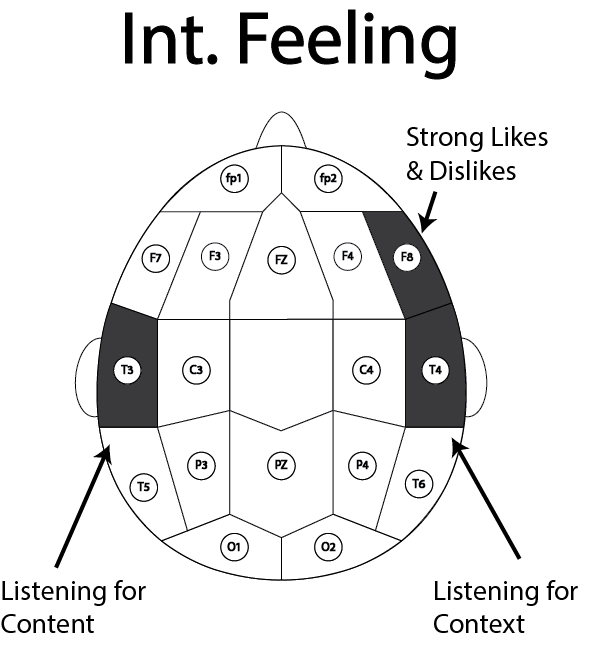The Eight Function-Attitudes In Depth
Introverted Feeling (Fi)
- Prioritizes personal authenticity and values
- The Feeling Analyzer: Also known as Authenticity or The Artist.
- Applies especially to FP types (ENFP, ESFP, INFP, ISFP)
“To thine own self be true.” - William Shakespeare
Spot Fi
You’re probably with a strong Fi type if you notice they are:
- Drawn to authenticity; shuts down around anything fake or performative.
- Speak in “true to me / not me” terms
- Easygoing until a core value is crossed
- Deeply passionate. They gravitate toward stories, art, characters, inner landscapes, ideals, and causes that resonate with their values.
Motivate Fi
- Make it personal. Connect tasks to people, impact, or values: “Here’s who this helps,” “Here’s why it matters.”
- Ask feeling questions. “How are you feeling about this?” “Does this sit right with you?” opens the door more than “Are you okay with this?”
- Respect their inner process. Give time to reflect before demanding decisions. “Think on it and let me know tomorrow” goes a long way.
- Invite their values, don’t impose yours. Ask, “What feels right to you here?” instead of telling them what should matter.
- Be real. Straightforward honesty (even if imperfect) builds trust; spin and manipulation crush it.
- Show that you see their integrity. Noticing their loyalty, empathy, or courage (“I really appreciate how you stood up for that client”) fuels motivation.
Connect With Fi Types
The same approaches that motivate Fi also deepen connection. Add these to build strong relational trust:
- Share what matters to you. Fi feels close when you talk about your own values, fears, and hopes - not just facts and opinions.
- Listen for the emotional thread. Reflect back both content and feeling: “So this isn’t just about work, it feels like a question of respect.”
- Validate the “tripwire.” When they suddenly become firm or upset, assume a core value was touched, rather than dismissing them as “overreacting.”
- Give them privacy + presence. Offer options like, “Want to talk now, or would you rather text or check in later?” Then show up fully when they do.
The Biggest Mistake with Fi Users
Never dismiss or minimize their internal experience.
- When a feeling, value, or concern is brushed off, even unintentionally, trust erodes immediately.
- You don't have to agree with them. Fi engages through authenticity, not pressure.
- Simply acknowledge what matters to them before you state your opinion.
- This will encourage their commitment, creativity, and enthusiasm.
Learn more about challenges FP types experience
Collaborate With Fi Types
Fi can deepen almost any collaboration by bringing heart, conscience, and authenticity into the mix. Others may need help understanding that Fi’s process is more reflective and internal. However, it’s working hard the whole time.
Below are some common pairings and how to make them shine.
Fi Strengths
Fi Brain Strengths

Whole-Brain Listening (T3/T4)
Research by Dario Nardi shows Fi types often enter a calm, whole-brain “flow state” while listening: taking in tone, emotion, and nuance, not just words.
Authentic Expression (F8)
When speaking from personal values, Fi types show heightened activity in regions tied to conviction and inner alignment. Their clarity increases when something truly matters.
Bottom Line:
Fi brains come alive around sincerity and personal meaning, making them powerful listeners and honest, values-based communicators. They have a keen ear for anything involving human factors.
6 Fi Team Strengths
Introverted Feeling (Fi) contributes to teams and organizations through six core strengths. Each theme shows how Fi enhances collaboration at the team level, and how those same strengths scale up to shape ethical, resilient organizational cultures.
- Fi keeps work grounded in human values. It helps teams avoid tone-deaf decisions and stay aligned with what truly matters, while giving organizations an early warning system for ethical drift and mission misalignment.
- Fi notices ruptures early and moves toward repair with sincerity. Its relational clarity strengthens trust on teams and helps organizations build cultures where people feel safe to speak honestly without fear of backlash.
- Fi senses when roles, expectations, or environments clash with human needs. This helps teams reduce burnout and improve fit, while guiding organizations to design humane workflows and values-aligned systems.
- Fi names the emotional truth under situations, helping teams communicate with sincerity and depth. This clarity also shapes organizational messaging, strengthening authenticity and preventing tone-deaf or inconsistent narratives.
- Fi brings emotional depth, nuance, and humanity to creative work. This not only enriches team output but also fuels organizational innovation that resonates with real human needs and strengthens mission impact.
- Once aligned, Fi commits with sincerity and steadiness. On teams, this builds reliability and deep bonds; across organizations, it strengthens trust, retention, and a reputation for integrity and consistency.
The Fi Process
Fi types (INFP, ISFP, ENFP, ESFP) navigate life through a sense of felt resonance.
- Feel for resonance or dissonance
Fi begins by sensing a subtle alignment or discomfort that signals what feels true, honest, or meaningful. - Do what resonates
Fi acts in the direction of authenticity: toward what feels right, humane, or congruent. - Reflect for inner congruence
After acting, Fi checks internally: Did that feel right? Did I stay true to myself? What needs adjusting?
Try Introverted Feeling
- Examine how you feel right now about your life and your choices. How are your choices aligned with your values? How might you make difference choices that are more aligned with your values?
- What are your personal convictions? What do you feel strongly about in terms of your most important values.
- What are your most important commitments?
- What moves you to tears?
- What breaks your heart?
- What kind of art do you really like?
- Who’s your favorite singer?
